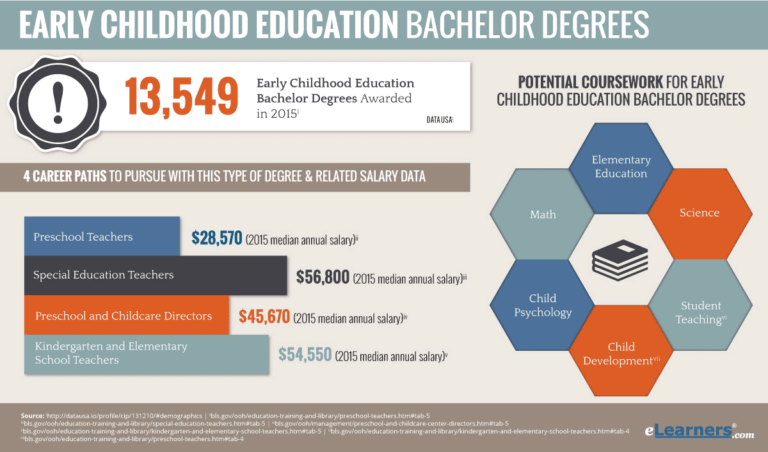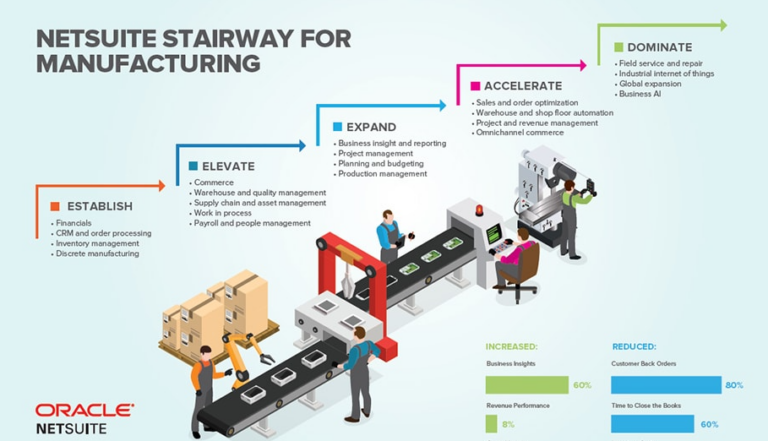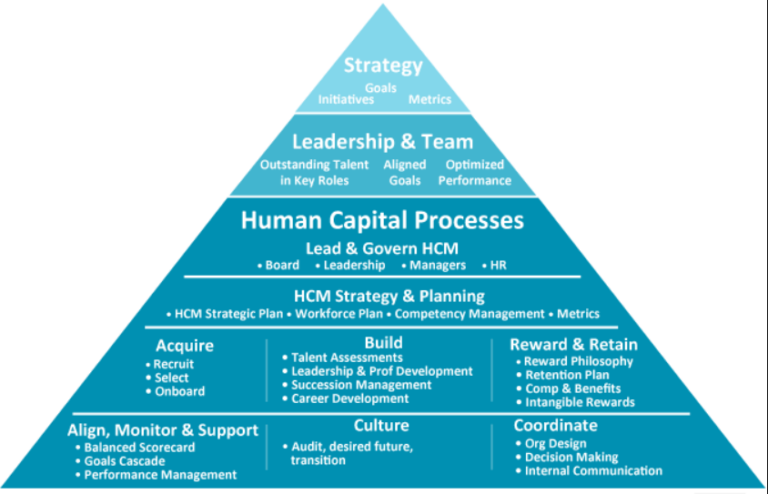Online Education Degrees are transforming how we learn and work. This isn’t just about convenience; it’s about accessibility, flexibility, and opening doors to opportunities previously unimaginable. We’ll explore the diverse range of online degrees available, the financial aspects, the technological tools used, and ultimately, how these degrees shape career paths and future success. Whether you’re a seasoned professional looking to upskill or a recent graduate charting a new course, this guide will provide a realistic and insightful look into the world of online education.
This exploration will delve into the specifics of various degree types, the costs involved and how to finance your education, the technology driving online learning, and finally, the career prospects and challenges that await graduates. We aim to equip you with the knowledge to make informed decisions about your educational journey.
Types of Online Education Degrees

Choosing an online degree can be a smart move for many, offering flexibility and accessibility. But with so many options available, understanding the different types is crucial for making an informed decision. This section will break down the various categories of online degrees, helping you navigate this exciting landscape.
Online Degree Categories and Career Paths
The following table categorizes common online degrees, outlining typical career paths and necessary skills. Remember, specific requirements and career prospects can vary based on the institution and program specifics.
| Program Type | Degree Level | Typical Career Paths | Required Skills |
|---|---|---|---|
| Business Administration | Associate’s, Bachelor’s, Master’s, MBA | Management Analyst, Financial Analyst, Marketing Manager, Project Manager | Analytical skills, communication skills, leadership skills, problem-solving skills |
| Computer Science | Associate’s, Bachelor’s, Master’s | Software Engineer, Data Scientist, Web Developer, Cybersecurity Analyst | Programming skills, problem-solving skills, analytical skills, technical skills |
| Education | Bachelor’s, Master’s, Doctorate (EdD) | Teacher, Curriculum Developer, Educational Consultant, School Administrator | Communication skills, interpersonal skills, patience, organizational skills, subject matter expertise |
| Healthcare Administration | Associate’s, Bachelor’s, Master’s | Healthcare Administrator, Medical Coder, Health Information Manager, Public Health Administrator | Organizational skills, communication skills, leadership skills, knowledge of healthcare regulations |
| Nursing | Associate’s (ADN), Bachelor’s (BSN), Master’s (MSN) | Registered Nurse (RN), Nurse Practitioner (NP), Nurse Educator, Clinical Nurse Specialist | Compassion, critical thinking, problem-solving skills, strong work ethic, medical knowledge |
Traditional Universities vs. Online-Only Institutions
There are key differences between online programs offered by traditional brick-and-mortar universities and those offered by institutions dedicated solely to online education. Traditional universities often leverage existing resources and faculty, integrating online programs into their broader academic structure. Online-only institutions, conversely, are built from the ground up for a digital learning environment, often specializing in online pedagogy and technology.
The choice depends on individual preferences; some students prefer the established reputation and potential for in-person interaction of a traditional university, while others value the focused online experience of a dedicated online institution.
Accreditation of Online Education Degrees
Accreditation is crucial. It signifies that an institution and its programs meet certain quality standards. Accrediting bodies, such as the Higher Learning Commission (HLC) and the WASC Senior College and University Commission (WSCUC) for regional accreditation, and specialized accreditors for specific fields (e.g., nursing), rigorously evaluate programs. A regionally accredited degree is generally more widely accepted by employers and other institutions than a non-accredited one.
Always verify the accreditation status of any online program before enrolling, as it significantly impacts the value and recognition of your degree. For instance, a nursing program without proper accreditation would render its graduates ineligible for licensure in many states.
Cost and Financial Aid for Online Education Degrees
Choosing an online education degree involves careful consideration of both the academic program and the financial implications. Understanding the cost of tuition and the various financial aid options available is crucial for making an informed decision. This section will explore the typical costs associated with different online degrees and detail the avenues for securing financial assistance.
Tuition costs for online degrees vary significantly depending on several factors, including the institution (public vs. private), the degree level (associate’s, bachelor’s, master’s, doctoral), the specific program of study, and the number of credit hours required. Generally, private institutions tend to have higher tuition rates than public institutions, and graduate programs typically cost more than undergraduate programs.
Average Tuition Costs for Online Education Degrees
The following list provides a general overview of average annual tuition costs. It’s important to note that these are estimates and actual costs can vary widely. Always check directly with the institution for the most up-to-date and accurate pricing information.
- Associate’s Degree: $5,000 – $15,000 per year
- Bachelor’s Degree: $10,000 – $30,000 per year
- Master’s Degree: $15,000 – $40,000 per year
- Doctoral Degree: $20,000 – $60,000+ per year
Financial Aid Options for Online Learners
Securing funding for online education is often achievable through a combination of resources. Many of the same financial aid options available to traditional on-campus students are also accessible to online learners.
| Financial Aid Option | Description | Eligibility Requirements | Application Process |
|---|---|---|---|
| Scholarships | Merit-based or need-based awards that do not need to be repaid. | Varies depending on the scholarship provider; may be based on academic achievement, extracurricular activities, financial need, or specific demographics. | Apply directly through the scholarship provider’s website or through the institution’s financial aid office. |
| Grants | Need-based awards that do not need to be repaid. | Generally determined by the student’s financial need, as assessed through the FAFSA (Free Application for Federal Student Aid). | Complete the FAFSA form. |
| Loans | Borrowed funds that must be repaid with interest. | Credit history may be a factor for some loans; eligibility often depends on factors such as enrollment status and academic progress. | Apply through the institution’s financial aid office or a private lender. |
Applying for Financial Aid for Online Education
The process of applying for financial aid for online education is similar to that for traditional on-campus programs. The key step is completing the Free Application for Federal Student Aid (FAFSA). This application determines eligibility for federal grants and loans. The FAFSA uses information about your family’s income and assets to calculate your Expected Family Contribution (EFC).
Your EFC is then used to determine your financial need and eligibility for federal aid. After submitting the FAFSA, your institution will use this information to determine your eligibility for institutional aid, including scholarships and grants.
Many online institutions also have their own scholarship programs. It’s advisable to explore these opportunities by checking the institution’s website and contacting the financial aid office directly. Private lenders also offer student loans, but it’s crucial to compare interest rates and repayment terms before committing to a loan.
Learning Platforms and Technologies Used in Online Education

Online education relies heavily on sophisticated learning platforms and technologies to deliver engaging and effective learning experiences. The choice of platform and the integration of various technologies significantly impact the student experience and the overall success of the online program. Understanding these tools is crucial for both students and educators navigating the digital learning landscape.
The effectiveness of online learning hinges on the seamless integration of various technologies. These tools aren’t just supplementary; they are fundamental to creating a dynamic and interactive learning environment that mirrors, and in some ways surpasses, the traditional classroom experience.
Learning Management Systems (LMS) Comparison
Several Learning Management Systems (LMS) are widely used in online education, each with its own strengths and weaknesses. Choosing the right LMS depends on the specific needs of the institution and the nature of the courses offered. Here’s a comparison of some popular options:
- Canvas: Known for its user-friendly interface and robust features, including assignment management, discussion forums, and grading tools. It offers strong mobile accessibility and a wide range of integrations with other educational tools. However, its extensive features can sometimes feel overwhelming for new users.
- Blackboard: A long-standing LMS, Blackboard is a reliable and feature-rich platform. It offers a wide range of tools and customization options, but its interface can be considered less intuitive than newer platforms. It boasts strong security features and extensive support resources.
- Moodle: An open-source LMS, Moodle offers high flexibility and customization. This makes it a popular choice for institutions wanting greater control over their platform. However, this flexibility can also mean a steeper learning curve for users and potentially higher maintenance costs.
- Brightspace: This LMS emphasizes collaboration and communication tools. It offers a clean and modern interface, strong mobile support, and a focus on personalized learning experiences. It’s known for its intuitive design but may lack some of the advanced features found in other platforms.
The Role of Technology in Enhancing Online Learning
Various technologies play a crucial role in enhancing the online learning experience, moving beyond simple content delivery to create immersive and interactive learning environments.
Video conferencing tools like Zoom and Google Meet facilitate real-time interaction between instructors and students, fostering a sense of community and enabling immediate feedback. Interactive simulations allow students to engage with complex concepts in a hands-on manner, providing a deeper understanding than passive learning. Educational apps and software provide targeted practice and reinforcement, catering to different learning styles and paces. Virtual reality (VR) and augmented reality (AR) technologies are increasingly used to create immersive learning experiences, particularly in fields like medicine and engineering.
Adaptive learning platforms personalize the learning path for each student, adjusting the difficulty and content based on individual progress.
Online Learning Formats: Pros and Cons, Online Education Degrees
Different online learning formats cater to diverse learning styles and preferences. Understanding the advantages and disadvantages of each is crucial for choosing the most effective approach.
| Learning Format | Pros | Cons | Example Use Case |
|---|---|---|---|
| Asynchronous | Flexibility, self-paced learning, accessibility for students in different time zones | Can lead to isolation, requires strong self-discipline, less immediate feedback | Reading assignments, online quizzes, discussion forums with flexible deadlines |
| Synchronous | Real-time interaction, immediate feedback, fosters a sense of community | Requires scheduling coordination, can be inflexible for students with busy schedules, technical difficulties can disrupt sessions | Live lectures, virtual office hours, group projects with real-time collaboration |
| Blended | Combines the flexibility of asynchronous learning with the engagement of synchronous learning, caters to diverse learning styles | Requires careful planning and coordination, may require more resources and effort from instructors | Online modules supplemented by in-person workshops or lab sessions |
Challenges and Benefits of Pursuing Online Education Degrees
Choosing between a traditional on-campus education and an online degree program is a significant decision. Both pathways offer unique advantages and disadvantages, and the optimal choice depends heavily on individual learning styles, lifestyle, and personal circumstances. This section will explore the key challenges and benefits of pursuing online education degrees, providing a balanced perspective to aid in your decision-making process.
Online learning presents a different set of hurdles compared to the traditional classroom setting. While traditional students face challenges like commuting, rigid schedules, and potential social pressures, online learners navigate a unique landscape of obstacles and opportunities. Understanding these differences is crucial for success in online education.
Comparison of Challenges Faced by Online and Traditional Learners
The challenges faced by online learners differ significantly from those encountered by traditional students. A direct comparison highlights these distinctions and helps potential online students prepare for the unique demands of online learning.
- Time Management: Online learners must be highly self-disciplined to manage their time effectively. Balancing work, family, and coursework requires meticulous planning and organization, a skill not always as heavily emphasized in traditional settings where schedules are more structured.
- Self-Discipline and Motivation: The lack of a physical classroom and direct instructor supervision necessitates strong self-motivation and self-discipline. Online learners must proactively manage their learning and stay on track without the external pressures of a classroom environment. Traditional students benefit from the inherent structure and accountability of daily classes.
- Lack of Face-to-Face Interaction: Building relationships with instructors and peers can be more challenging in an online environment. While online platforms offer communication tools, they often lack the spontaneous interaction and collaborative learning opportunities found in traditional classrooms. This can impact both academic performance and the overall learning experience.
- Technological Proficiency: Successful online learning requires a certain level of technological proficiency. Students must be comfortable using various online platforms, software, and communication tools. While traditional learning relies less on technology, it can still present challenges for students who struggle with certain software or digital literacy.
- Isolation and Loneliness: The lack of regular in-person interaction can lead to feelings of isolation and loneliness for some online learners. This is particularly true for students who thrive in collaborative learning environments or value the social aspects of campus life. Traditional students generally have more opportunities for social interaction.
Advantages of Pursuing an Online Education Degree
Despite the challenges, online education offers numerous compelling advantages that make it an attractive option for many students. The flexibility, accessibility, and affordability are key factors that draw individuals to this learning modality.
- Flexibility and Convenience: Online learning offers unparalleled flexibility. Students can access course materials and complete assignments at their own pace and convenience, fitting their studies around their existing commitments, such as work or family responsibilities. This is a significant advantage over the fixed schedules of traditional education.
- Accessibility: Online education removes geographical barriers, allowing students from anywhere in the world to access high-quality educational programs. This is particularly beneficial for students in remote areas or those with disabilities that limit their mobility.
- Affordability: Online programs often have lower tuition fees and reduced costs associated with commuting, accommodation, and other expenses. This can make higher education more accessible to students from diverse socioeconomic backgrounds. However, it’s crucial to compare costs across different institutions and programs.
- Personalized Learning: Many online programs offer personalized learning experiences, allowing students to progress at their own speed and focus on areas where they need extra support. This can be particularly helpful for students who learn at a different pace than their peers in a traditional classroom setting.
- Wider Range of Program Choices: Online education expands access to a wider range of programs and specializations, often exceeding the offerings of local brick-and-mortar institutions. This allows students to pursue niche areas of study that may not be available in their geographic area.
Description of the Typical Online Learning Environment
The online learning environment is characterized by a blend of technological tools and digital resources, offering both advantages and disadvantages. Understanding these aspects is crucial for prospective online learners.
A typical online learning environment might include a Learning Management System (LMS) such as Canvas, Blackboard, or Moodle. These platforms serve as central hubs for course materials, assignments, communication tools, and grading. Students access lectures via video recordings, engage in discussions through forums, submit assignments electronically, and receive feedback from instructors online. Additional resources might include online libraries, virtual labs (for science-related programs), and collaborative document editing tools.
The advantages include accessibility, convenience, and structured organization of learning materials. However, disadvantages include potential technical difficulties, the need for self-discipline, and the reduced opportunities for spontaneous interaction and in-person collaboration compared to traditional classrooms.
Accreditation and Recognition of Online Education Degrees

Choosing an online degree program requires careful consideration, and accreditation plays a crucial role in ensuring the quality and legitimacy of your education. Accreditation signifies that a program meets certain educational standards, making your degree more valuable to potential employers and graduate schools. Understanding accreditation and how it impacts your career prospects is vital for making informed decisions.Accreditation ensures that the online program you choose adheres to established educational quality standards.
It provides assurance that the curriculum is rigorous, the faculty are qualified, and the resources available are sufficient to provide a quality learning experience. This translates to a more valuable degree in the job market, potentially leading to better career opportunities and higher earning potential. Lack of accreditation can significantly devalue your degree, limiting your career prospects and making it harder to advance professionally.
Verifying Accreditation Status
To verify a program’s accreditation, begin by checking the institution’s website. Reputable institutions will clearly display their accreditation status and the accrediting agency’s name. You can then independently verify this information by visiting the accrediting agency’s website. These agencies maintain databases of accredited institutions, allowing you to confirm the program’s accreditation status. If the information is not readily available or if there are inconsistencies, it’s crucial to investigate further before enrolling.
Contacting the institution directly to inquire about their accreditation status is also a prudent step.
Employer and Professional Organization Recognition of Online Degrees
While the recognition of online degrees varies across industries and organizations, accredited online degrees generally receive the same level of recognition as their traditional counterparts. Many employers and professional organizations prioritize the accreditation of the institution and the program rather than the mode of delivery. A well-respected accreditation can significantly enhance your credentials and increase your chances of being considered for a job or professional membership.
However, some fields might still have a preference for traditional education, so it’s beneficial to research specific industry standards before committing to an online program. Building a strong professional network and showcasing your skills and experience alongside your degree can further enhance your credibility.
Reputable Accrediting Bodies for Online Education Programs
Choosing a program accredited by a reputable agency is crucial. Here are some examples of such agencies:
- The Higher Learning Commission (HLC): Accredits institutions across the Midwest region of the United States, including many online programs.
- The Western Association of Schools and Colleges Senior College and University Commission (WSCUC): Accredits institutions in the western United States, with a significant number of online programs.
- The Southern Association of Colleges and Schools Commission on Colleges (SACSCOC): Accredits institutions in the southern United States, including many online learning programs.
- The Middle States Commission on Higher Education (MSCHE): Accredits institutions in the Middle States region of the United States, with a growing number of online programs.
- The New England Commission of Higher Education (NECHE): Accredits institutions in New England, including those offering online degree programs.
It’s important to note that this is not an exhaustive list, and other reputable accrediting bodies exist. Always verify the accreditation status of any institution or program before enrollment.
Conclusion
Ultimately, the decision to pursue an online education degree is a deeply personal one. Weighing the flexibility and affordability against potential challenges like self-discipline is crucial. However, the potential rewards – a fulfilling career, increased earning potential, and personal growth – are significant. With careful planning, the right resources, and a proactive approach, an online education degree can be a powerful catalyst for achieving your professional and personal aspirations.
Remember to research accreditation thoroughly and choose a program that aligns with your goals and learning style. Your future is waiting.
Q&A
Is an online degree as valuable as a traditional degree?
Yes, provided it’s from an accredited institution. Employers increasingly recognize the value of online degrees, especially those from reputable universities.
How do I find accredited online programs?
Check the program’s website for accreditation information. You can also verify accreditation through organizations like the Higher Learning Commission (HLC) or regional accrediting agencies.
What if I need technical support with my online courses?
Most online programs offer technical support through email, phone, or online help centers. Check your program’s student resources for contact information.
Can I transfer credits from a previous program to an online degree?
Yes, many online programs accept transfer credits. Check with the admissions office of the program you’re interested in to see their transfer credit policies.
Are there networking opportunities for online students?
Yes, many online programs offer virtual networking events, online forums, and student communities to help students connect with peers and faculty.





